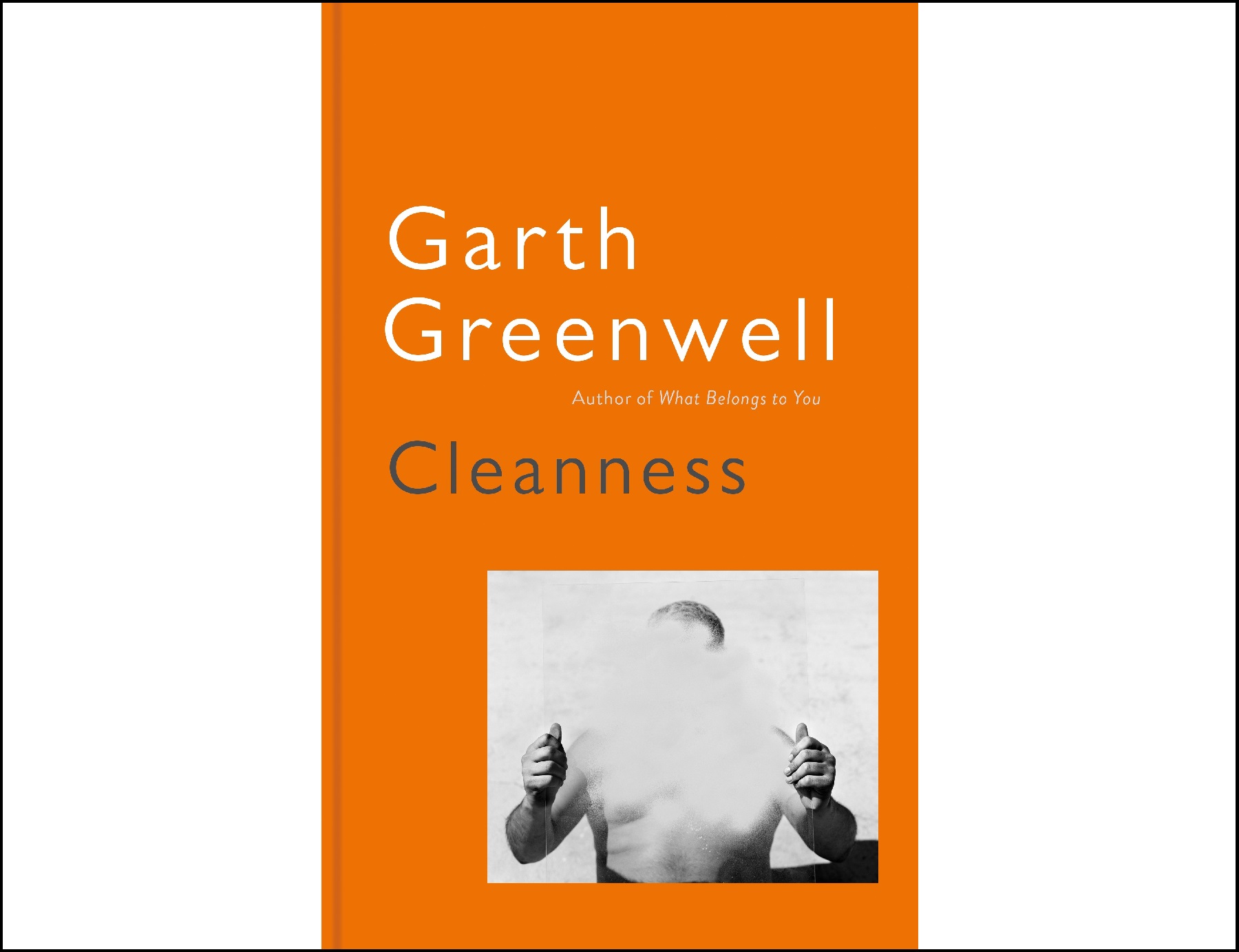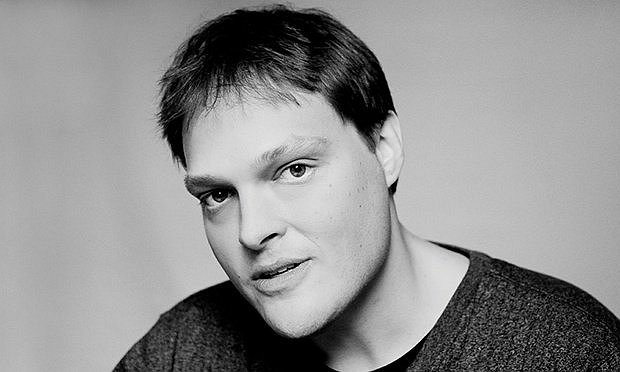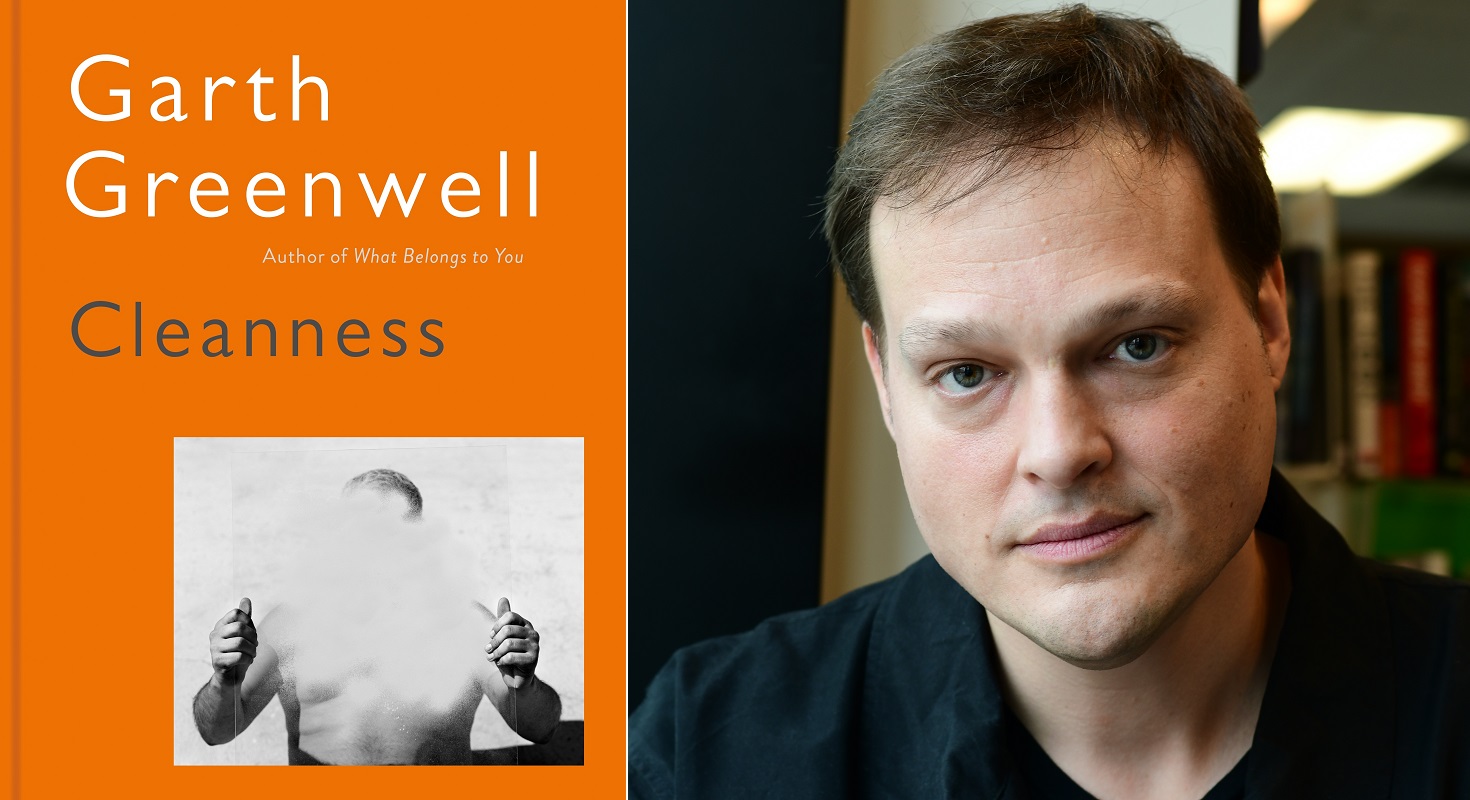Garth Greenwell: ‘I am not interested in making queer lives palatable to a mainstream audience’
The author of 2016's 'What Belongs To You' talks eagerly-anticipated follow-up 'Cleanness'.
By Will Stroude
Interview: John Brooks
Four years after Garth Greenwell’s What Belongs To You transported readers to a crumbling vision of Sofia and the sensual love affair between a US profressor and the troubled Bulgarian man he meets at a cruising spot, the US author has returned with the novel’s sort-of sequel, Cleanness.
Transporting readers back inside the mind of that unnamed professor as he reflects on the sexual and romantic encounters which shaped him, the book is already been heralded as one of the year’s best queer novels – just as well, given the huge acclaim for What Belongs To You once saw it declared “the great gay novel of our times”.
Cleanness sees Greenwell write the same visceral and sexually-charged humanity for which his previous works have become renowned, tapping into a universal queer experience through the most personal, intimate moments of his characters.

As we bring you an exlcusive extract from Cleanness (which you can read in full here), we caught up with Kentucky-born Greenwell to find out more about the novel, and why he won’t water down some of grubbier realities of gay life for a mainstream audience…
Cleanness has the same feeling of remoteness and melancholy that permeated What Belongs To You, which comes in part from the setting of Bulgaria, a country that seems to be falling into disrepair. Why did you decide to revisit this country, and these characters?
It wasn’t really a decision to revisit. The earliest pieces of Cleanness were written while I was working on What Belongs To You, and I always understood the two books to be part of a larger project. What Belongs to You needed to be a streamlined container, obsessively focused on the two men at its heart; it necessarily excluded a lot of the narrator’s world. Cleanness is a more varied book, I think, with more characters and more setting – -and also with more varied emotional notes. There is melancholy in it, but there is also joy, and in the central love story I wanted to write about the wonder and revelation, for this narrator, of very ordinary happiness.
There’s a lot of sex in Cleanness, and whilst pleasure is taken from it, it never seems to be purely for pleasure – it often has a transcendental or therapeutic purpose, which seems to be hidden behind the motive of pleasure. I was therefore wondering if you thought sex has been underwritten in contemporary gay fiction?
I think sex is underwritten in English-language fiction across the board, despite standout exceptions like Alan Hollinghurst and Eimear McBride. I seldom see sex represented as what I think it is: our densest form of communication. I wanted to pair explicitness and inwardness; I wanted to try to get at all the different ways we use sex, as you say: for pleasure, for community, for transcendence, for thinking through the mess of human experience.

I saw on your Instagram recently that you were reading The Art of Piss by Tim Dean. Dean’s point that Serrano’s Piss Christ is only sacrilegious if you see urine as something filthy made me think of your work – Cleanness is only extreme or explicit if you think gay sex is extreme or explicit. If you see it instead as something pure – and clean – then this is a book about community, connection and healing. Is this something you’ve tried to do – to free gay sex from these ideas?
I want to trouble these easy dichotomies we try to force life into: cleanness and filth, negation and affirmation, pride and shame, cruelty and tenderness. None of my experience, in sex or any other aspect of my life, breaks down in such easy ways. Nothing in human life is pure, and if we become too attached to the idea of purity we will make ourselves engines of destruction. I don’t want to say that gay sex isn’t extreme or filthy or pure or joyful or abject or affirming of community or destructive of community; I want to explore how it is all of these things.
When I look at human life, I see a series of double binds. We want to be clean, and also we want to bathe in filth, for instance. I don’t think there’s any resolving a quandary like that, and I reject the idea that we should valorize one of these longings and brutally repress the other. My hope is that Cleanness dramatizes in various ways how the dichotomies break down: how in filth we find cleanness, in cleanness, filth. Characters begin chapters wanting to be made nothing, and end by composing their human face; a moment of cruelty leads to a declaration of love; a scene of seeming brutality and domination ends in shared laughter. I wanted to think about what it might mean to try to articulate a kind of ethics – a way of being in the world, among other human beings; a way of bearing the self – that could accommodate these contradictions instead of seeking to resolve them.
Tim Dean is a brilliant thinker, and his book Unlimited Intimacy was important to me as I worked on Cleanness, especially “The Little Saint.”
In recent queer fiction and criticism, there seems to be a big focus on giving LGBTQ people happy endings, breaking free from the tragic-queer stereotype. Your stories are filled with sadness, but that sadness is often quite productive, it’s a pathway to new insights, experiences and connections. Have you ever felt the pressure to give your characters a happy ending?
I do like exploring ways that emotions we often think of as purely negative (melancholy, shame, cruelty) can be productive in the ways you mention: productive of insight, of sociality, of solidarity, of pleasure. And it’s true that I have a temperament that tilts toward a tragic view of life, and that finds the tragic more accommodating of revelation than happiness. Temperaments aren’t arguments, but givens; we don’t choose them and we can’t argue our way out of them. But I would like for the art I make to be bigger than my temperament. The central section of Cleanness tells the story of a love relationship that is utterly unprecedented in the narrator’s experience, and that gives him access to a kind of life he had never imagined for himself. I did want to challenge myself in that section to write something like happiness – not ecstasy, not dramatic joy, but common, ordinary happiness. I wanted to challenge myself to see that experience as profound, productive of revelation and wonder. Whatever the bent of my temperament, my actual belief is that all human experience is accommodating of revelation. I wanted to try to write something that gave witness to that.
All that said, I think writers should resist pressures of all kinds. I want queer stories of all kinds, and I utterly reject the idea that only stories that have happy endings can help us live our lives. That’s just a fundamentally wrong understanding of art. Giovanni’s Room is a book in which homosexuality is only ever a closed door. When I read it as an isolated queer kid in Kentucky in the early 90s, it opened for me every door.

I loved What Belongs to You, and afterwards I gave it to my mum, who liked it even more than I did. Your books are classed as ‘gay’ fiction, but do you feel that you’re writing stories for a gay audience, or writing gay stories for a wider audience?
Everything I do as a writer and critic and teacher aims to break apart the logic behind this question. All art is particular. Art gains its force from being rooted in particular moments, particular places, particular communities, particular times. Art achieves the universal through devotion to the particular. I am writing books centered on queer lives. I am writing them from and to queer communities. I am not interested in making those lives palatable or immediately legible to a mainstream audience. I work in aesthetic modes that have been coded as queer, and one of the reasons I want to write is to be part of the ongoing conversation that is queer art.
It is because of all this, not despite it, that my books are for everyone, and have whatever universal resonance they have.
Bless you for giving my book to your mom, by the way. And bless your mom for liking it.
To me, The Little Saint is one of the most powerful pieces of modern gay writing. It’s so many things – erotic, uncomfortable, empowering, heart-breaking. How did this piece come about, what was the inspiration?
Thank you so much for saying that. It’s my favorite chapter in the book. It came into being because when I wrote ‘Gospodar’ – an earlier chapter in which the narrator is the submissive in an S/M encounter – I had to write a scene that would explore a similar experience from the dominant role. I knew when I started that I wanted to think about promiscuity as a discipline of radical hospitality–hospitality in the old sense of the word, a way of standing in an ethical relation with the other. I wanted to take seriously modes of queer sociality that have almost always been dismissed as (at best) morally unserious, like cruising and gay male promiscuity. I knew that I wanted to think about ways that apparently negative emotions like shame and cruelty can be made productive of things we value. But the ending of the chapter was a complete surprise to me, as was the extent to which the title character helps the narrator find his way to a kind of difficult, compromised, almost certainly passing, absolutely graced redemption.
Cleanness is out now, published by Picador.
